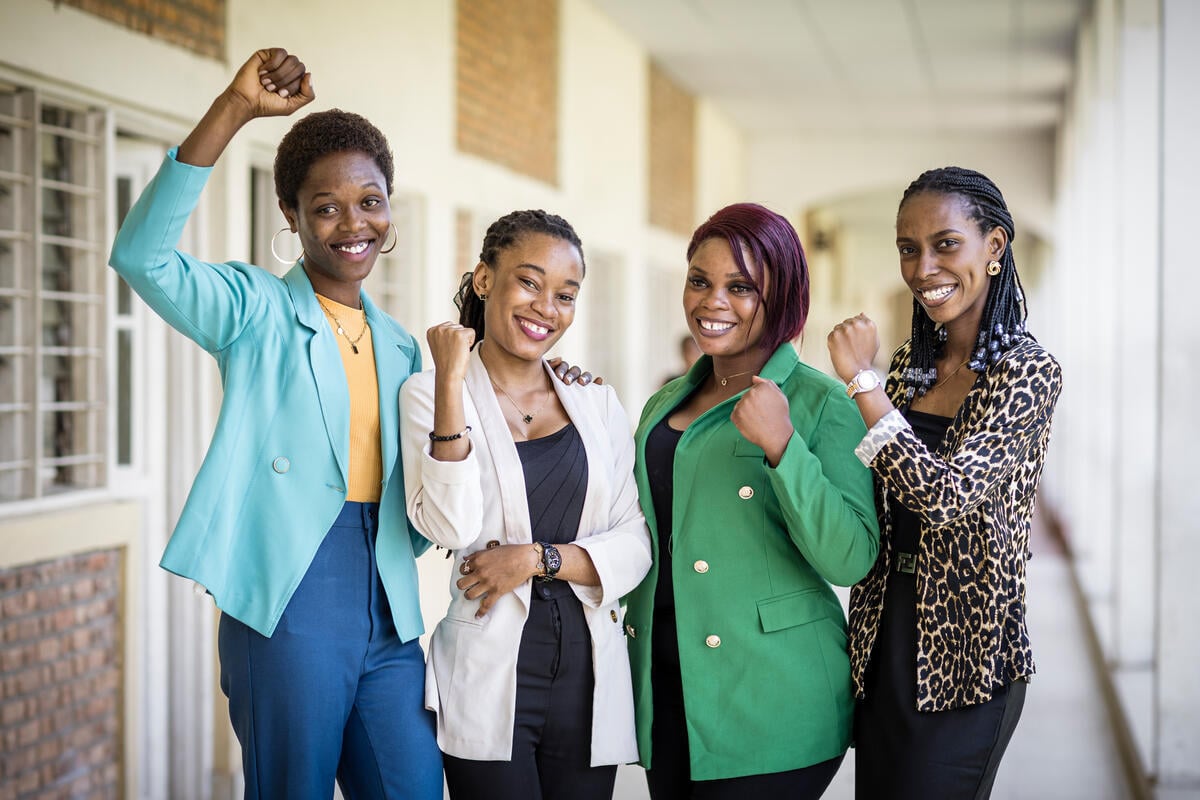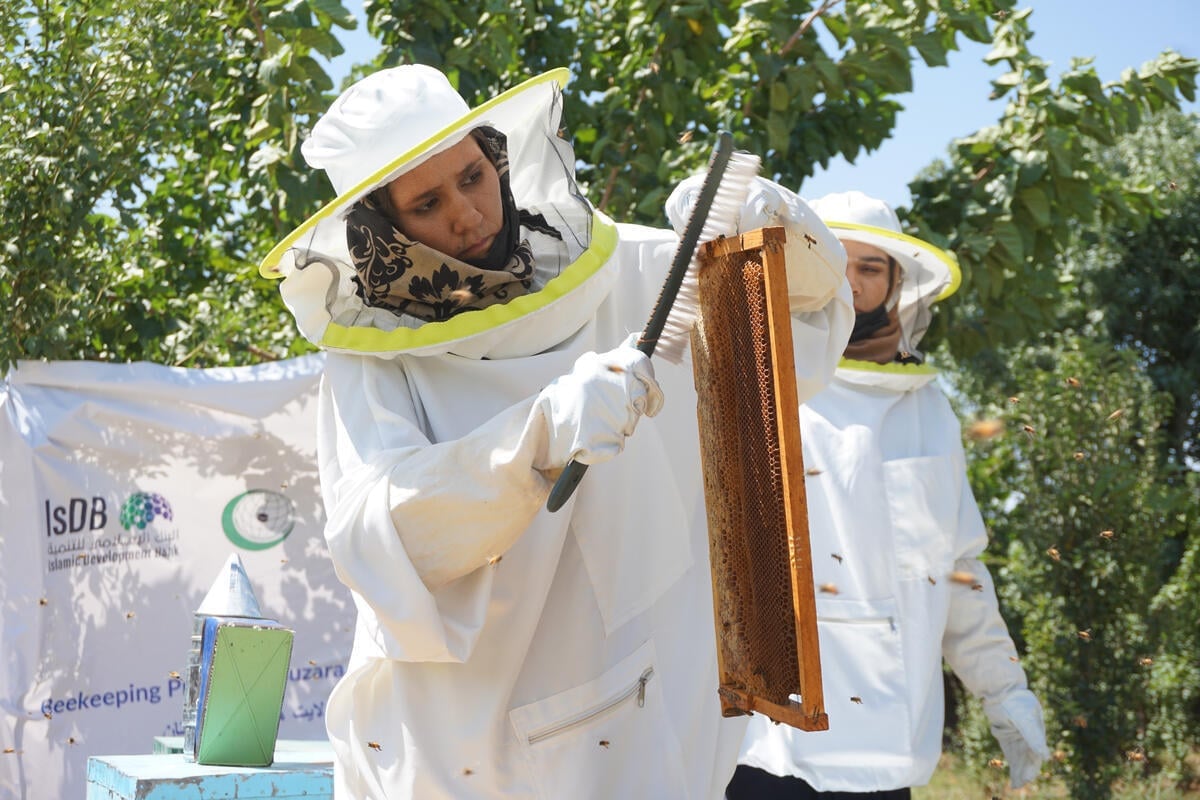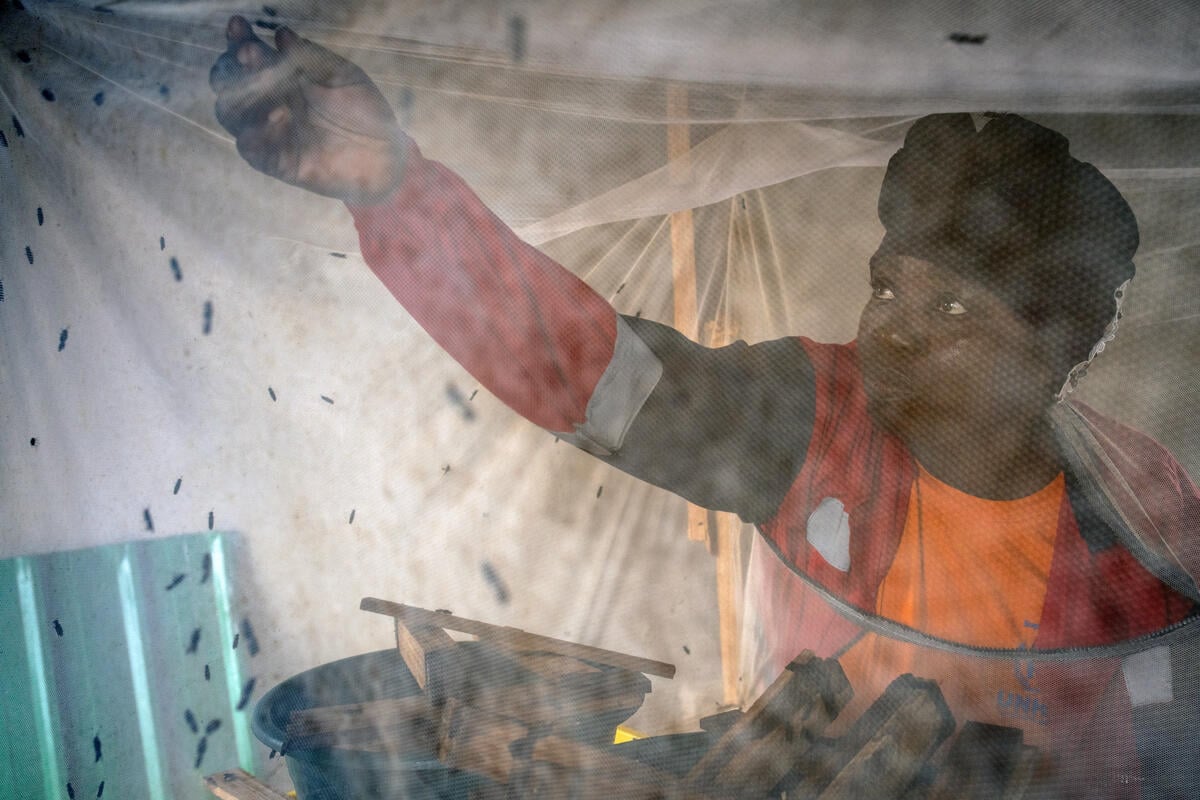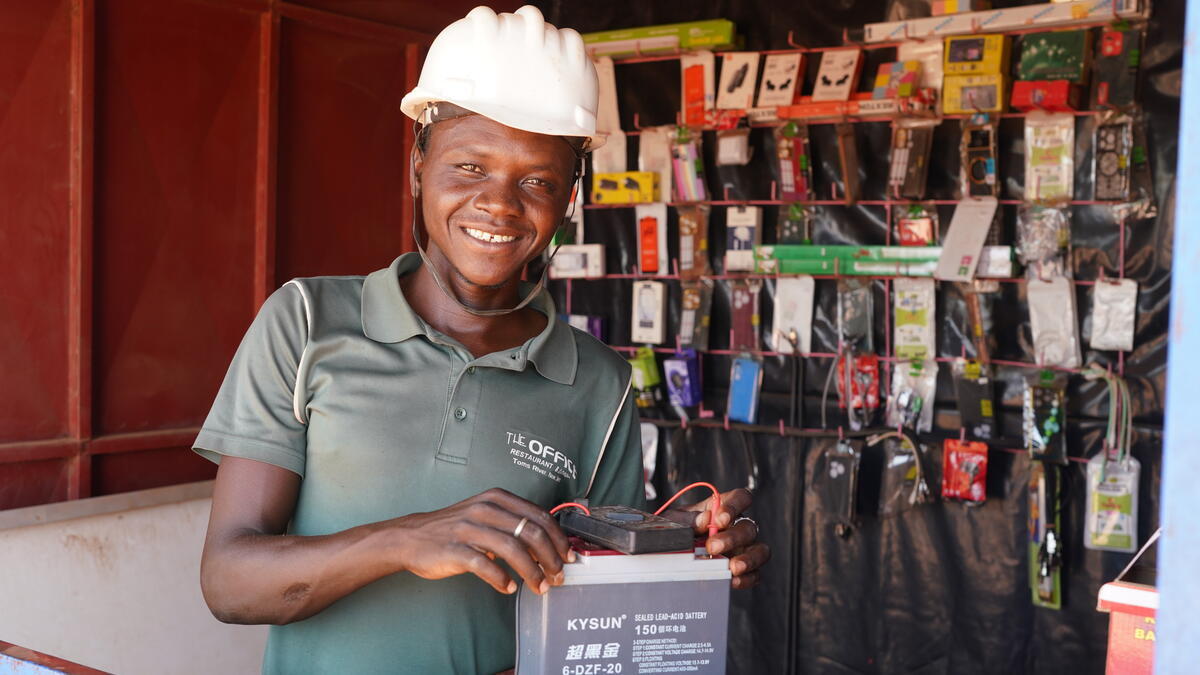Visually impaired women find hope in eastern Afghanistan
Visually impaired women find hope in eastern Afghanistan
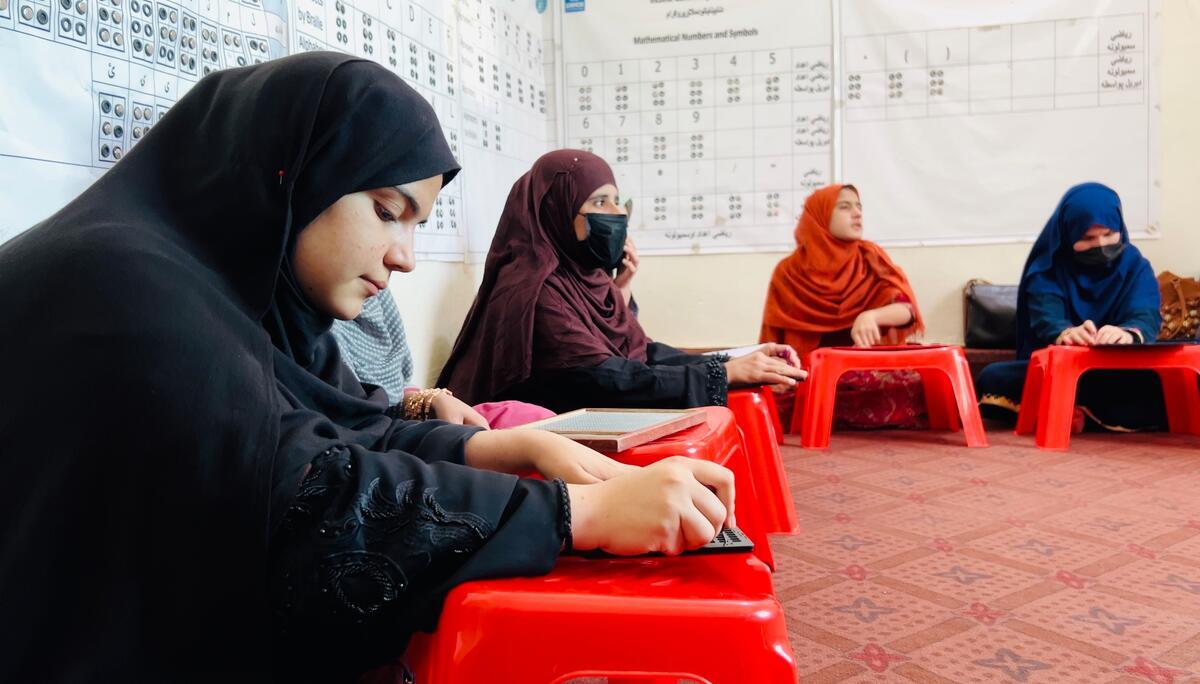
Helai Noori, 20, reads Braille during a class at a UNHCR centre in Samarkhail, in Afghanistan's Nangarhar province.
But in this classroom – and others like it set up by UNHCR, the UN Refugee Agency, and its partner WADAN, the Welfare Association for the Development of Afghanistan, in two neighbouring provinces – the women come together, socialize, listen to each other’s experiences and learn new skills to help them navigate the world and thrive in it, gaining self-confidence and independence.
"I have faced a lot of challenges being blind,” said 22-year-old Arezo, who lives in the provincial capital Jalalabad and attends the Visually Impaired Women Support Programme in Samarkhel. “While others with sight could attend school, I was left behind.” Now, at last, she is catching up.
Arezo is one of 90 visually impaired students who enrolled in the programme in late 2022 and has since learned to read Braille and do basic maths, use a guide cane to walk around safely and carry out domestic chores such as cooking and washing, which enables them to contribute to family life. The programme’s success means it is this month being expanded to reach a further 200 women, with the hope that additional funding might make it accessible to men, girls and boys in the future.
Practical skills, psychological support
Beyond practical day-to-day skills, the training programme also includes psychosocial counselling and sessions on gender-based violence to equip the women to manage in a society in which visually impaired women are frequently met with stigma and hostility.
Some of the women, such as Arezo, are also learning communication skills, hoping it might lead to previously unattainable job opportunities. For Arezo, it has meant the rare chance to continue learning and to improve her reading and writing skills. “We have been learning essential skills for effective interaction, including how to communicate with others, report information accurately, and even deliver impactful seminars,” she said.

Arezo Tawoon, 22, takes part in one of the classes for visually impaired women in Samarkhel.
Arezo is a passionate student motivated by her faith and desire to help other people who are blind and visually impaired. She has written a portion of the Koran in Braille, using the patterns of raised dots on a page to represent characters, making the religious text accessible to those who are blind. "It was one of my biggest dreams to write books,” Arezo said.
Of Afghanistan’s 43 million population, more than 400,000 are blind, according to the World Health Organization. A further 1.5 million are visually impaired, with 60 per cent of blindness cases caused by cataracts, a condition that can be resolved with simple eye surgery if medical facilities are available.
‘I can imagine a better future’
For Arezo and her fellow participants, the programme has opened up new horizons.
Helai lost her sight after a traumatic encounter with militants when she was just 14, and for years struggled with the feelings of isolation and inadequacy that followed. “I faced a lot of problems because previously I could see,” recalled Helai, now 20. “I couldn’t go to school anymore and lost all the hope that I had in my heart. My mental health got worse.”
The opportunity to get out of the house and to meet and learn with other visually impaired women has transformed Helai’s outlook on life. “I used to sit at home and couldn’t go anywhere. But now I can do my own tasks and go anywhere without a guide,” she said. "Coming here made me hopeful again.”
"It was one of my biggest dreams to write books.”
Another young woman who is blind, Amina, 20, lives in Jalalabad with her parents and nine siblings, five of whom are also visually impaired. Before joining the UNHCR/WADAN initiative, her dream of becoming a teacher for women who are blind seemed impossible, but the skills she has learned mean it may one day be realized.
“Before, I felt a sense of inferiority compared to sighted individuals, as I could not read and write. While others who were sighted could go to school and study, we were still at home and had negative thoughts all the time,” Amina said.
"Now I know Braille and hope to become a Braille instructor for others. I can imagine a better future," she said. "I have become very hopeful. I see my life in a better way.”
"Now I know Braille ... I can imagine a better future."








